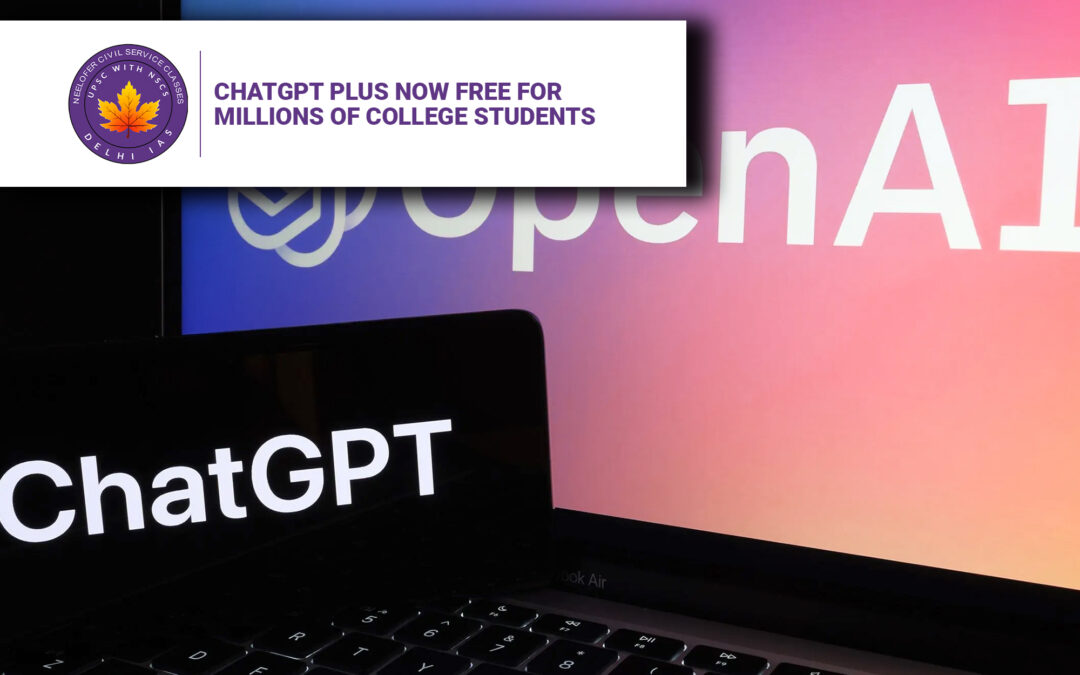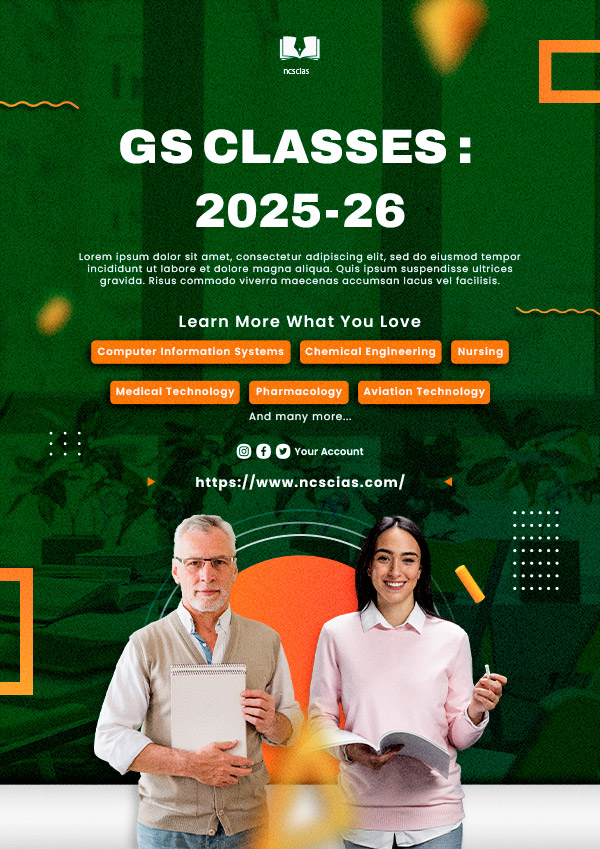ChatGPT Plus Now Free for Millions of College Students
Why in News?
In a landmark announcement on April 3, 2025, OpenAI declared that its premium subscription, ChatGPT Plus, will be free for all college students in the U.S. and Canada through the end of May. This $20/month service includes access to GPT-4o, voice interaction, image generation, and research tools—features that go far beyond what’s available in the free version of ChatGPT. 
This move comes right before final exams season, putting OpenAI in direct competition with Anthropic’s newly launched Claude for Education and reshaping the landscape of AI in higher education.
Reimagining AI in the Classroom
OpenAI’s latest move is more than just a marketing ploy—it’s a strategic masterstroke aimed at capturing the attention (and loyalty) of students who will soon become professionals in an AI-driven workforce. “Today’s college students face enormous pressure to learn faster and tackle harder problems,” said Leah Belsky, VP of Education at OpenAI. The idea is to empower them not just with tools, but with opportunities to explore, experiment, and think critically with AI.
The ChatGPT Plus offer gives students access to:
-
GPT-4o, OpenAI’s most advanced language model
-
Advanced Voice Mode for real-time AI conversations
-
Unlimited DALL·E image generation
-
Deep Research, which synthesizes information across multiple sources
-
Higher message limits and priority access
Anthropic Strikes First – But OpenAI Strikes Harder
The timing of OpenAI’s offer is no coincidence. Just 24 hours earlier, Anthropic introduced Claude for Education with a “Learning Mode” designed to guide students through problems via Socratic questioning. Claude’s approach focuses on building critical thinking skills, while OpenAI is betting big on full-feature access and productivity enhancement.
This is shaping up like the browser wars of the 1990s, where free access to software was used to dominate market share. Now, AI firms are competing for early adoption among students—future professionals whose tool preferences could influence billions in enterprise spending later on.
Academic Integrity in the Age of AI
The availability of powerful AI tools raises pressing questions: Where does assistance end and cheating begin? As AI becomes better at mimicking reasoning, analysis, and writing, universities are being forced to rethink how they assess students.
Institutions like the University of California have begun adapting, allowing AI for brainstorming and editing—but not for final submissions without citation. However, policies vary wildly, and many professors still develop guidelines on their own. The real challenge is defining the ethical use of AI, especially when it’s integrated so deeply into the academic workflow.
Why the Education Market Matters So Much
According to OpenAI, over one-third of U.S. college students already use ChatGPT, with 25% of usage tied to academics. Education is quickly becoming one of AI’s most important battlegrounds—not just for revenue, but for influence.
Tech giants like Google (with Gemini) and Microsoft (with Copilot) are also racing to enter the classroom. But what makes OpenAI’s move unique is the depth of access it provides to students—essentially handing them the keys to the full AI toolbox for free.
This early exposure doesn’t just improve learning outcomes—it cultivates lifelong users who may carry these tools into their careers.
The Future of Learning Is Here
Some universities have already taken the leap, integrating AI tools from the first day of class. They’re building curricula that blend ethics, critical thinking, and technical AI literacy. The goal is clear: prepare students for a world where AI doesn’t replace them, but augments their capabilities.
A recent World Economic Forum survey found that 75% of employers now consider AI literacy a key skill. Students with hands-on experience using tools like ChatGPT Plus will have a distinct edge in the evolving job market.
5 Q&A: Everything You Need to Know
Q1. What is ChatGPT Plus and what does it include?
ChatGPT Plus is OpenAI’s premium service that includes access to GPT-4o, voice interaction, unlimited image generation, Deep Research tools, and faster performance.
Q2. Who qualifies for free access and how do they get it?
College students in the U.S. and Canada can get free access through May by verifying their enrollment via SheerID on the ChatGPT student page.
Q3. How does OpenAI’s offer compare with Anthropic’s?
While OpenAI provides unrestricted access to powerful tools, Anthropic’s Claude emphasizes guided learning through Socratic questioning. The former is more productivity-oriented; the latter more skill-building.
Q4. How are universities responding to AI use in academics?
Responses vary. Some institutions allow AI for certain tasks like brainstorming or editing, while others are redesigning assessments to highlight human-only capabilities.
Q5. Why is the education market so important for AI companies?
Capturing student loyalty today could mean workplace dominance tomorrow. Early exposure to AI tools may lead students to advocate for those same tools in their professional lives, shaping the future of enterprise AI adoption.





